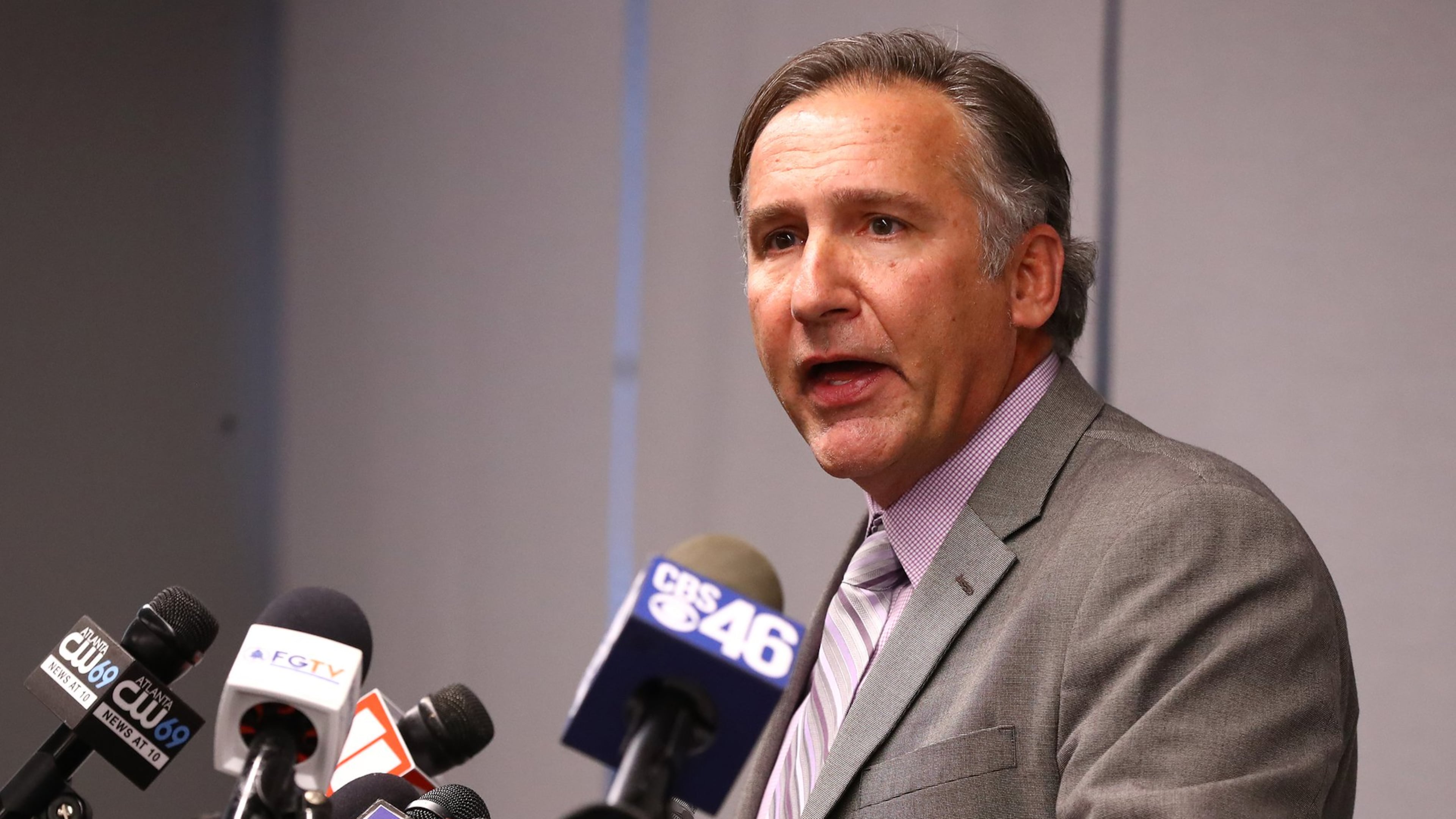Fulton plans for COVID-19 response when students return to classrooms

Fulton County Schools has given its firmest plan yet for how it will handle COVID-19 when in-person classes return for the 2020-21 school year.
Superintendent Mike Looney and his team created a matrix that uses the current risk of community spread and the number of students/staff infected in specific buildings to determine the district’s response.
Looney was the first superintendent, and the first large metro employer, to keep students and staff home starting when the pandemic became obvious. He shuttered buildings starting March 13.
“At the time, that was a really good decision. But we have learned that might not be necessary moving forward, so we want to be more strategic,” he said.
The new plan that Looney presented Thursday calls for only closing schools where the virus has been found, instead of all district buildings.
READ | College Park mayor worries about fair split of COVID-19 school funds
The plan’s best case scenario: A school building will close for 24 hours if a single student/staff member has the virus and there are less than five cases per 100,000 people in the community. If buildings close, students must still do work from home as they did the last few months of this year.
Staff will choose to close schools based on the virus' spread by cluster, zone, North/South or the entire district. So, as it was with the first two Fulton school cases in March, if the virus is worse on the Southside, then the district will just close those schools instead of shutting down all school buildings throughout the county.
The only instance in which the new plan calls for closing all buildings is if there are five or more students/staff in multiple areas and more than 100 cases per 100,000 people.
Looney, who has been on the job one year, said the plan is based on data and advice from health officials, but there are still so many considerations — like what if they find out a student is positive while everyone is still in class? He said in that case students will be asked to stay in their classrooms until it's time to leave.
Any family who feels uncomfortable physically sending students to school may continue online instruction, Looney said.
READ | Fulton school board talks in-person classes next year, budget effects
He plans to announce on June 29 whether or not the district will re-open on its previously scheduled date of Aug. 10. Right now, the district is planning to have in-person classes, with the addition of many new distancing and safety measures.
“We’re going to continue to have positive cases develop in schools when we’re in a face-to-face model, and this is what our plan of action is when we address that,” he said.
Fulton County Schools Superintendent Mike Looney took over the 94,000-student district on June 17, 2019. Facing COVID-19, Looney was first school district leader to send students and staff home. Ahead of his one-year anniversary, The Atlanta Journal-Constitution asked him to look back on his time.
You shut down school campuses on March 13. What was it like to be the first large metro employer to shut down for COVID-19?
“It’d be an understatement to say I lost a little sleep over it.” Looney said he convened all the members of his cabinet, reached out to the Fulton health board and created a virtual learning plan in 48 hours. Other school districts followed.
What was that like making that decision in the moment?
“It was uncomfortable to be the first in line to make that decision, but that experience as a Marine, where I have step up to the plate and make a decision with information I have, [helped].”
What have you learned?
“We need to narrow the number of software applications that we ask our students, teachers and parents to be proficient in.”
How are you planning to re-open school in the fall?
“We’re extremely hopeful and we’re planning for that likelihood, but we will have contingency plans.”
What has been the hardest thing?
“The greatest shortcoming and challenge I have faced: There are a lot of stakeholders and clear and succinct communication is always challenging,” but it’s tougher when you can’t be in-person.
What has been the biggest surprise throughout this?
“We’re learned the importance of relationships.” He said they’ve never been more connected to parents, whom he commends for juggling all the added work.



